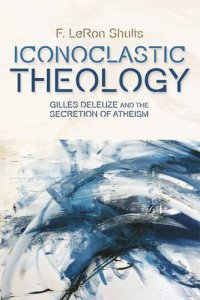
Ebook: Iconoclastic Theology: Gilles Deleuze and the Secretion of Atheism
Author: F. LeRon Shults
- Year: 2014
- Publisher: Edinburgh University Press
- Language: English
- pdf
A new reading of Deleuze’s whole corpus in light of his treatment of religion and theological themes
F. LeRon Shults explores Deleuze’s fascination with theological themes and shows how his entire corpus can be understood as a creative atheist machine that liberates thinking, acting and feeling. Shults also demonstrates how the flow of a productive atheism can be increased by bringing Deleuzian concepts into dialogue with insights derived from the bio-cultural sciences of religion.
Gilles Deleuze consistently hammered away at icons, overturning pretentious images taken as true copies of ideal models. He was particularly critical of religious Figures. In What is Philosophy? Deleuze argued that religion and transcendence, like philosophy and immanence, always come (and go) together. What value, then, could he possibly have found in engaging theology, which is typically bound to a particular religious coalition? Chipping away at repressive religious representations was valuable in itself for Deleuze, but he also believed that religion produced something of considerable value. He insisted that every religion secretes atheism, and none more so than Christianity.
Key Features
- The first exposition of Deleuze’s radical critique of religion, demonstrating the crucial role this creative destruction plays throughout his philosophical corpus
- Provocatively describes this aspect of Deleuze’s work as ‘theology’, following his own (paradoxical, humorous, diabolical) description of that discipline as 'the science of non-existing entities'
- Brings Deleuze studies into dialogue with the bio-cultural sciences of religion, which are transforming the current debates about the value of atheism in the academy and the public sphere